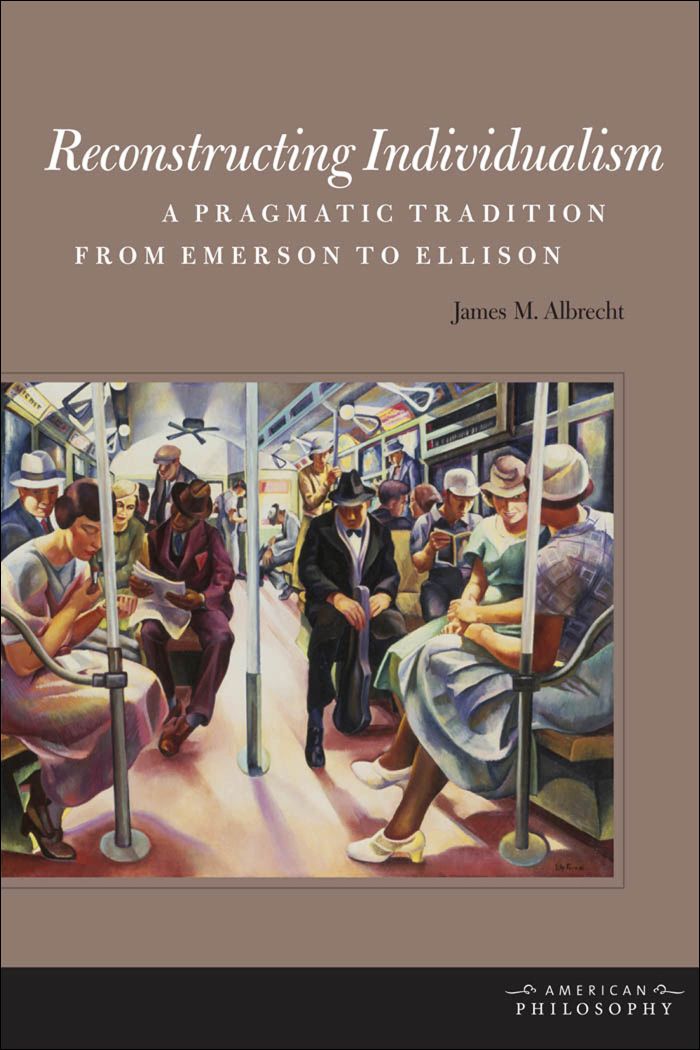Reconstructing Individualism
A Pragmatic Tradition from Emerson to Ellison

This book can be opened with

America has a love–hate relationship with individualism. In Reconstructing Individualism, James Albrecht argues that our conceptions of individualism have remained trapped within the assumptions of classic liberalism. He traces an alternative genealogy of individualist ethics in four major American thinkers—Ralph Waldo Emerson, William James, John Dewey, and Ralph Ellison.
These writers’ shared commitments to pluralism (metaphysical and cultural), experimentalism, and a melioristic stance toward value and reform led them to describe the self as inherently relational. Accordingly, they articulate models of selfhood that are socially engaged and ethically responsible, and they argue that a reconceived—or, in Dewey’s term, “reconstructed”—individualism is not merely compatible with but necessary to democratic community. Conceiving selfhood and community as interrelated processes, they call for an ongoing reform of social conditions so as to educate and liberate individuality, and, conversely, they affirm the essential role individuality plays in vitalizing communal efforts at reform.
“What emerges from these discussions of an Emerson-inflected pragmatism is a convincing narrative of the development of a democratic theory that both maintains a standard of public responsibility and accountability, while preserving the vital role of individual moral reasoning and moral choice in that process. I consider this a very important contribution to the history of American ethical and political thought. This book will have an immediate impact on Emerson studies."——David M. Robinson, Oregon State University, and author of Emerson and the Conduct of Life
Describes a genealogy of individualist ethics in Ralph Waldo Emerson, William James, John Dewey, and Ralph Ellison that departs from that of classical liberalism.——The Chronicle Review
“Albrecht does a very good job of treating Emerson convincingly as a pragmatist precursor without losing sight of the complexity of Emerson’s own prose and interpretive frames.”——Joseph M. Thomas, Albright College
Albrecht's thorough presentation of Emerson as a pluralist, relational individualist serves as a convincing backdrop for his reading of Pragmatism as an expression of a shared American individualist tradition.——Emerson Society Papers

